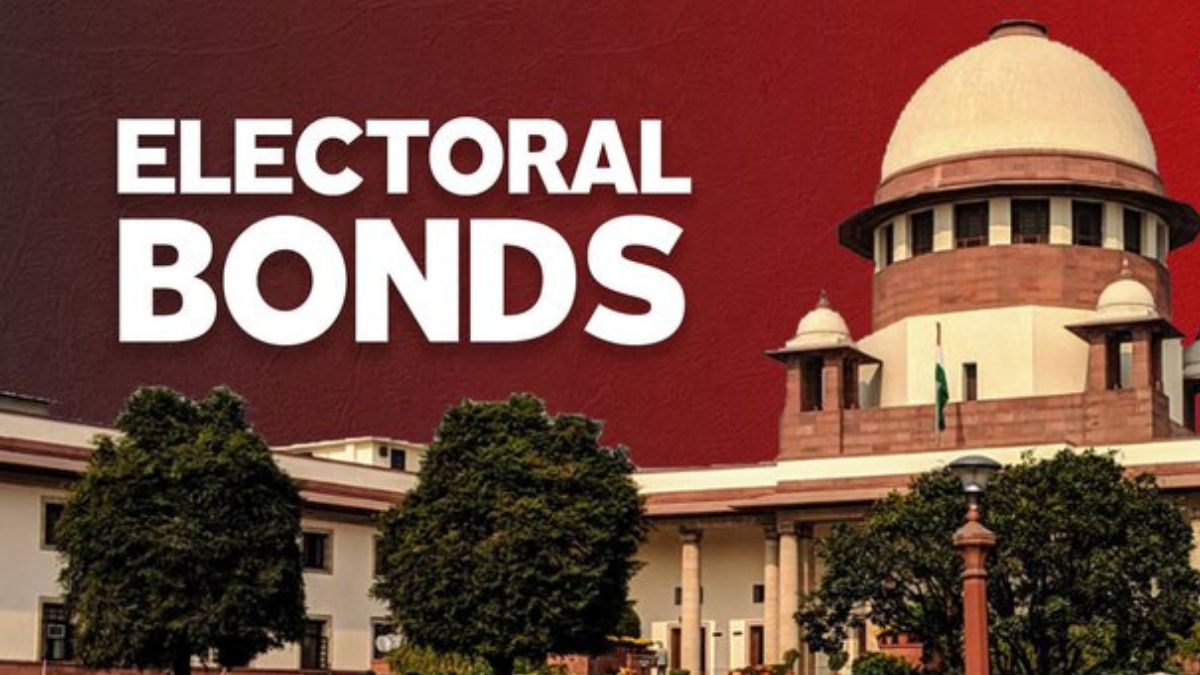Supreme Court Strikes Down Electoral Bond Scheme, Declares it Unconstitutional
The Electoral Bond scheme, introduced in 2018, allowed for anonymous donations to political parties through specially issued bonds, ostensibly aimed at promoting transparency in political funding. However, critics argued that the scheme lacked adequate safeguards against corruption and opacity, as it allowed for unlimited, undisclosed donations from corporations and individuals to political parties.

Advertisement
New Delhi : In a landmark decision, the Supreme Court of India has ruled the Electoral Bond scheme unconstitutional, striking a significant blow to the government’s electoral funding mechanism. The verdict, delivered by a bench headed by Chief Justice of India, marks a pivotal moment in the ongoing debate surrounding transparency and accountability in political funding.
The Electoral Bond scheme, introduced in 2018, allowed for anonymous donations to political parties through specially issued bonds, ostensibly aimed at promoting transparency in political funding. However, critics argued that the scheme lacked adequate safeguards against corruption and opacity, as it allowed for unlimited, undisclosed donations from corporations and individuals to political parties.
The Supreme Court’s decision to strike down the Electoral Bond scheme comes after years of legal challenges and public outcry against its perceived flaws. In its ruling, the apex court declared the scheme unconstitutional, citing concerns over the lack of transparency and the potential for misuse to influence electoral outcomes.
The verdict is a significant victory for transparency advocates and civil society groups, who have long argued for greater accountability in political financing. By invalidating the Electoral Bond scheme, the Supreme Court has reaffirmed the principles of transparency and fairness in the electoral process, signaling a clear message to lawmakers and political parties about the importance of upholding democratic values.
The ruling is also likely to have far-reaching implications for future electoral funding reforms in India. With the Electoral Bond scheme now declared unconstitutional, there will be renewed pressure on the government to devise alternative mechanisms for political financing that are more transparent and accountable.
However, the decision has sparked a debate among political circles, with some arguing that the ruling could hamper the ability of political parties to raise funds for election campaigns. Proponents of the Electoral Bond scheme contend that it provided a legitimate avenue for businesses and individuals to support political parties without fear of reprisal or undue influence.
Despite these concerns, the Supreme Court’s verdict represents a significant step towards strengthening India’s democratic institutions and fostering greater transparency in the political process. As the country prepares for upcoming elections at both the state and national levels, the ruling sends a powerful message about the importance of fair and transparent electoral practices in shaping the future of Indian democracy.
Advertisement

